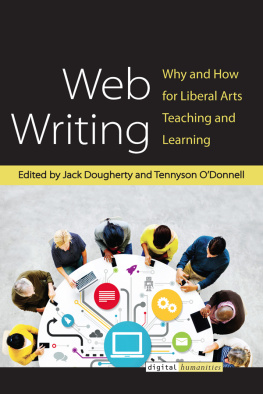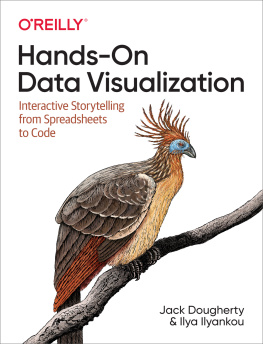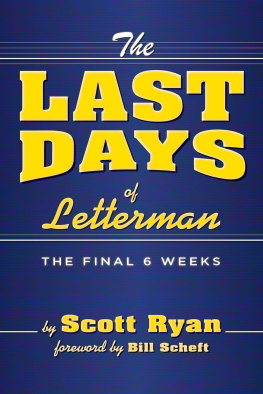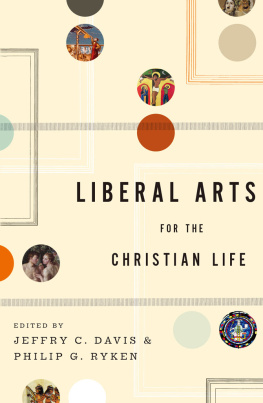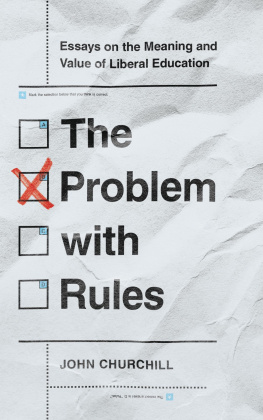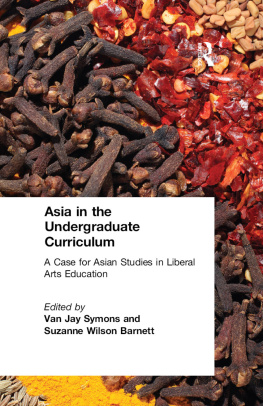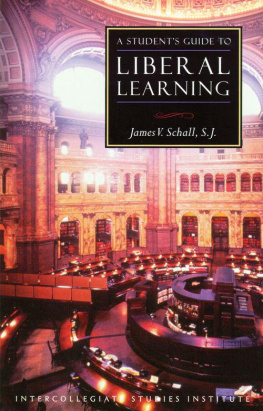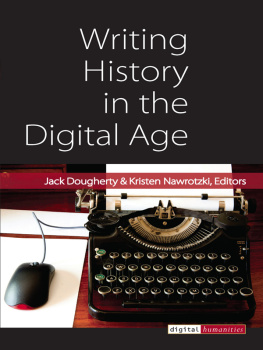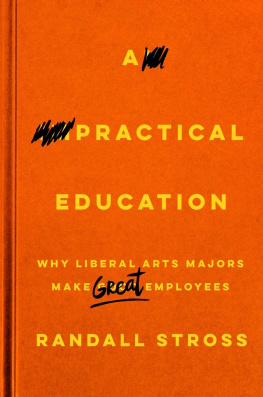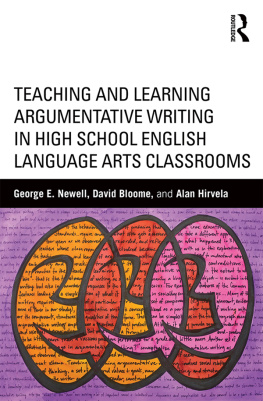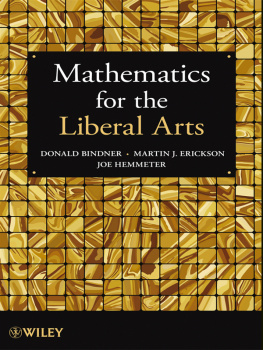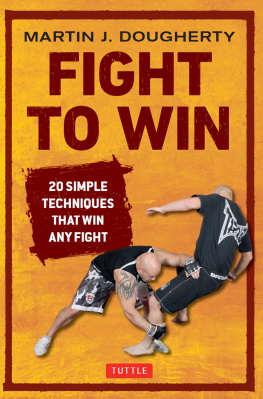Jack Dougherty - Web Writing: Why and How for Liberal Arts Teaching and Learning
Here you can read online Jack Dougherty - Web Writing: Why and How for Liberal Arts Teaching and Learning full text of the book (entire story) in english for free. Download pdf and epub, get meaning, cover and reviews about this ebook. year: 2018, publisher: University of Michigan Press, genre: Politics. Description of the work, (preface) as well as reviews are available. Best literature library LitArk.com created for fans of good reading and offers a wide selection of genres:
Romance novel
Science fiction
Adventure
Detective
Science
History
Home and family
Prose
Art
Politics
Computer
Non-fiction
Religion
Business
Children
Humor
Choose a favorite category and find really read worthwhile books. Enjoy immersion in the world of imagination, feel the emotions of the characters or learn something new for yourself, make an fascinating discovery.
- Book:Web Writing: Why and How for Liberal Arts Teaching and Learning
- Author:
- Publisher:University of Michigan Press
- Genre:
- Year:2018
- Rating:3 / 5
- Favourites:Add to favourites
- Your mark:
- 60
- 1
- 2
- 3
- 4
- 5
Web Writing: Why and How for Liberal Arts Teaching and Learning: summary, description and annotation
We offer to read an annotation, description, summary or preface (depends on what the author of the book "Web Writing: Why and How for Liberal Arts Teaching and Learning" wrote himself). If you haven't found the necessary information about the book — write in the comments, we will try to find it.
Web Writing: Why and How for Liberal Arts Teaching and Learning — read online for free the complete book (whole text) full work
Below is the text of the book, divided by pages. System saving the place of the last page read, allows you to conveniently read the book "Web Writing: Why and How for Liberal Arts Teaching and Learning" online for free, without having to search again every time where you left off. Put a bookmark, and you can go to the page where you finished reading at any time.
Font size:
Interval:
Bookmark:
 Page i Page ii Page iii
Page i Page ii Page iii Jack Dougherty and Tennyson O'Donnell, editors
University of Michigan Press
Ann Arbor
2015 by Jack Dougherty, Tennyson ODonnell, and chapter contributors
Some rights reserved

This work is licensed under the Creative Commons Attribution-Noncommercial-No Derivative Works 3.0 United States License. To view a copy of this license, visit http://creativecommons.org/licenses/by-nc-nd/3.0/ or send a letter to Creative Commons, 171 Second Street, Suite 300, San Francisco, California, 94105, USA.
Published in the United States of America by
University of Michigan Press
Manufactured in the United States of America
Printed on acid-free paper
2018 2017 2016 2015 4 3 2 1
A CIP catalog record for this book is available from the British Library.
DOI: http://dx.doi.org/10.3998/dh.13396229.0001.001
ISBN 978-0-472-07282-8 (hardcover)
ISBN 978-0-472-05282-0 (pbk.)
ISBN 978-0-472-12135-9 (e-book)
This book was produced using PressBooks.com, and PDF rendering was done by PrinceXML.
Page v Page viTo all teachers who have patiently read, listened, commented on, and encouraged students in the writing process.
J.D. and T.O.
Page vii Page viiiDIGITALCULTUREBOOKS, an imprint of the University of Michigan Press, is dedicated to publishing work in new media studies and the emerging field of digital humanities.
Page ix- Introduction
Jack Dougherty and Tennyson O'Donnell - Sister Classrooms
Blogging Across Disciplines and Campuses
Amanda Hagood and Carmel Price - Indigenizing Wikipedia
Student Accountability to Native American Authors on the Worlds Largest Encyclopedia
Siobhan Senier - Science Writing, Wikis, and Collaborative Learning
Michael O'Donnell - Cooperative In-Class Writing with Google Docs
Jim Trostle - Co-Writing, Peer Editing, and Publishing in the Cloud
Jack Dougherty - How We Learned to Drop the Quiz
Writing in Online Asynchronous Courses
Celeste Tng Vy Sharpe, Nate Sleeter, and Kelly Schrum Page x - Tweet Me A Story
Leigh Wright - Civic Engagement
Political Web Writing with the Stephen Colbert Super PAC
Susan Grogan - Public Writing and Student Privacy
Jack Dougherty - Consider the Audience
Jen Rajchel - Creating the Reader-Viewer
Engaging Students with Scholarly Web Texts
Anita M. DeRouen - Pulling Back the Curtain
Writing History Through Video Games
Shawn Graham - Getting Uncomfortable
Identity Exploration in a Multi-Class Blog
Rochelle Rodrigo and Jennifer Kidd - Writing as Curation
Using a 'Building' and 'Breaking' Pedagogy to Teach Culture in the Digital Age
Pete Coco and M. Gabriela Torres - Student Digital Research and Writing on Slavery
Alisea Williams McLeod Page xi - Web Writing as Intercultural Dialogue
Holly Oberle - The Secondary Source Sitting Next To You
Christopher Hager - Web Writing and Citation
The Authority of Communities
Elizabeth Switaj - Empowering Education with Social Annotation and Wikis
Laura Lisabeth - There Are No New Directions in Annotations
Jason B. Jones
By arrangement with the University of Michigan Press, open-access digital editions of the book are freely available on the Trinity College ePress platform at http://epress.trincoll.edu/webwriting. Readers may view the web edition online, or freely download the PDF, ePUB, and Kindle (Mobi) editions. The Trinity College ePress platform also offers an extra Tutorials section with how-to guides for several digital writing tools mentioned in the text. This platform relies on two open-source WordPress pluginsPressBooks (by Hugh McGuire at Book Oven, Inc.) and PressBooks Textbook (by Brad Payne at BCCampus)on a web server at TrinfoCafe.org (maintained by Carlos Espinosa).
In addition, the 2013 open peer review edition of the book manuscript is freely available from Trinity College at http://webwriting2013.trincoll.edu. This edition includes the open call for essay ideas, preliminary drafts, and over one thousand comments by readers of the manuscript. It relies on another open-source WordPress plugin, CommentPress Core (by Christian Wach at the Institute for the Future of the Book).
All web links to the final edition of this book were functional as of August 2014. Due to the changing nature of the Internet, all external links have been fully cited in the notes to assist readers of the print and digital editions. If a link is no longer active, search the web address using the Way Back Machine provided by the Internet Archive at https://archive.org/.
Page xv Page xviSpecial thanks go to several people who nourished Web Writing in its early stages: The inaugural group of Center for Teaching and Learning Fellows who kindly provided feedback on the first draft (Kath Archer, Brett Barwick, Carol Clark, Luis Figueroa, Irene Papoulis, Joe Palladino), and several colleagues who offered early advice and encouragement, specifically Korey Jackson, Kristen Nawrotzki, colleagues at MediaCommons, and many THATCamp workshop participants. Carlos Espinosa at TrinfoCafe.org capably manages the server that hosts the CommentPress and PressBooks editions of this volume. Christian Wach developed the open-source CommentPress Core plugin (based on a previous version by Eddie Tejeda) and patiently answered several questions about customizing our child theme. Hugh McGuire and colleagues created the open-source PressBooks plugin, and Brad Payne coded the open-source PressBooks Textbook plugin and theme. Our logo was designed by Rita Law, manager of creative services at Trinity College. At Michigan Publishing, we thank editorial director Aaron McCullough and his colleagues Meredith Kahn, Christopher Dreyer, Kevin Hawkins, Jason Colman, Jillian Downey, and Tom Dwyer. We also appreciate the thoughtful commentary of the expert reviewers commissioned by the publisherBarbara Fister, Jason Mittell, Amanda Seligman, and Kate Singeras well as nearly seventy other readers who participated in the open peer review.
Page 1Jack Dougherty and Tennyson O'Donnell
Web Writing reboots how we think about the Internet in higher education, with special attention paid to liberal arts teaching and learning. Our book carves out pedagogically pragmatic responses to contemporary debates that tend to be dominated by two extreme visions of technology. At one end, skeptics dismiss the web as an unwelcome intrusion into the college classroom, most frequently in the form of gadgets and platforms that distract students from the primary lesson or content. This perspective views Internet technology as a shallow substitute for true learning, yet rarely recognizes its potential to enhance what we value most about a liberal arts education: the intensified learning opportunities presented by writing across the curriculum. At the other extreme, proponents of massive online courses praise the benefits of large-scale video lectures and machine-driven assessments with the promise of opening up the college curriculum to all. Their view embraces the web as a tool to expand student enrollments while reducing instructional labor costs, yet rarely considers its consequences for highly-engaged student learning that we expect in small liberal arts colleges.
Next pageFont size:
Interval:
Bookmark:
Similar books «Web Writing: Why and How for Liberal Arts Teaching and Learning»
Look at similar books to Web Writing: Why and How for Liberal Arts Teaching and Learning. We have selected literature similar in name and meaning in the hope of providing readers with more options to find new, interesting, not yet read works.
Discussion, reviews of the book Web Writing: Why and How for Liberal Arts Teaching and Learning and just readers' own opinions. Leave your comments, write what you think about the work, its meaning or the main characters. Specify what exactly you liked and what you didn't like, and why you think so.

